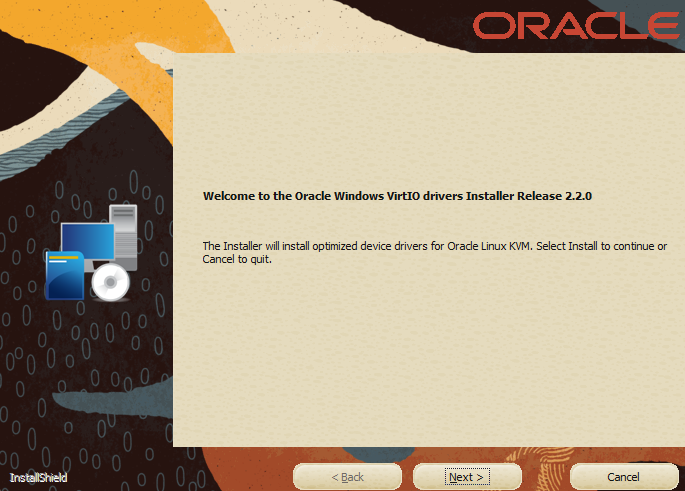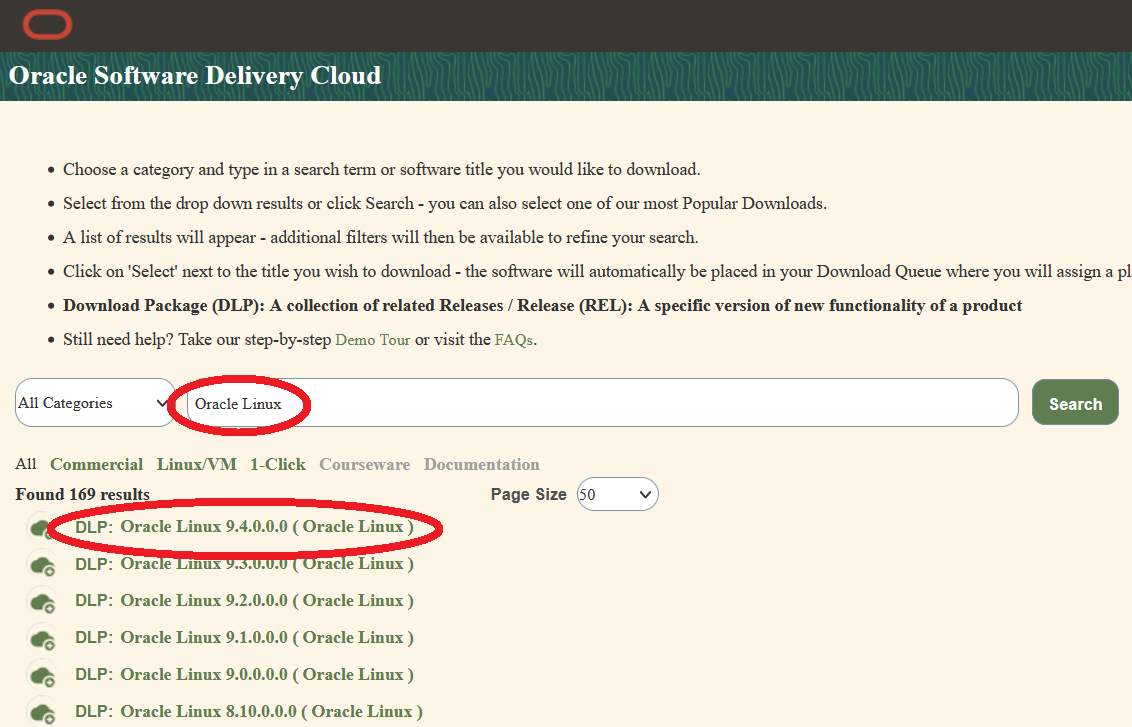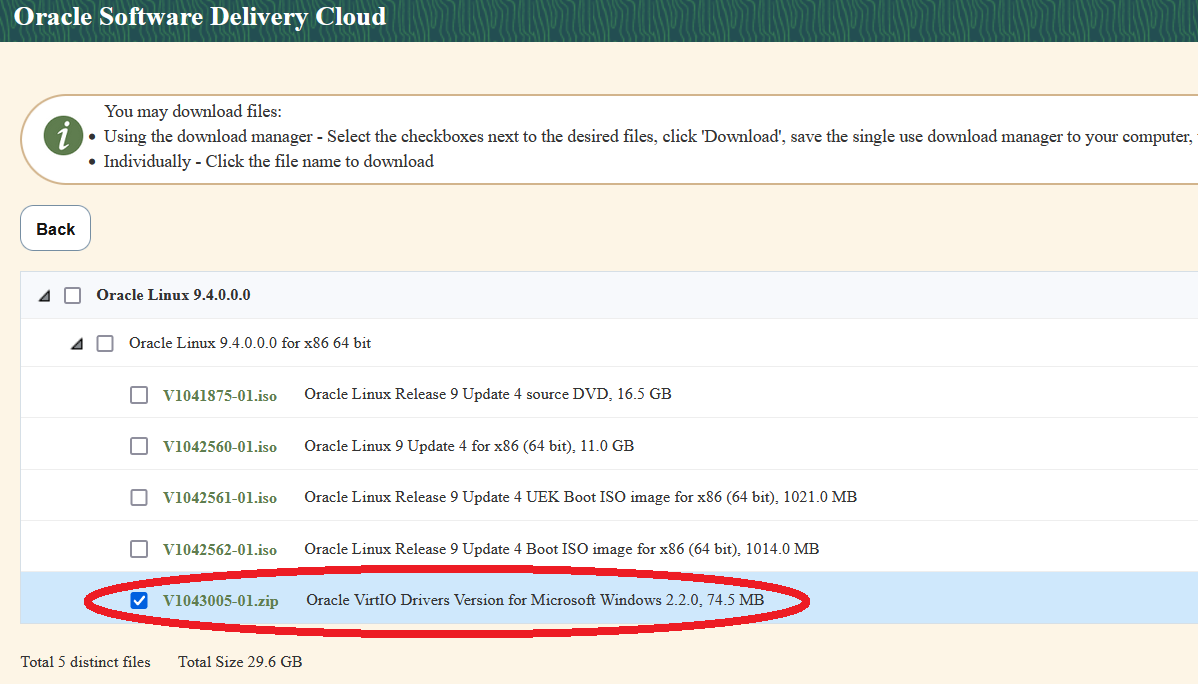The Oracle Linux and Virtualization team is pleased to announce Oracle VirtIO Drivers release 2.2 for Microsoft Windows. The Oracle VirtIO Drivers for Microsoft Windows are paravirtualized (PV) drivers for Microsoft Windows guests that are running on Oracle Linux KVM on the x86_64 processor architecture. Oracle Linux customers using the Oracle VirtIO Drivers for Microsoft Windows will benefit from improved performance for network and block (disk) devices on Microsoft Windows guests.
What’s New?
The Oracle VirtIO Drivers release 2.2 for Microsoft Windows offers a number of enhancements and fixes including:
- Added support for the VirtIO balloon driver which allows the host to reclaim memory from the guest.
- Updated ISO driver folder layout that allows the installer to automatically load the correct driver, detect the virtual disks, and resume installation.
- VirtIO installer and service updated to support:
- Non-KVM to KVM migration for Windows guests that are PC and Q35 machine types
- Installing and upgrading VirtIO drivers for PCI and PCIe devices

Oracle VirtIO Drivers Support
Oracle VirtIO Drivers for Microsoft Windows support the KVM hypervisor with Oracle Linux on-premises and on Oracle Cloud Infrastructure. The following guest Microsoft Windows operating systems are supported with the Oracle VirtIO Driver 2.2 release:
| Microsoft Windows supported Guest Operating Systems | 64-bit | 32-bit |
|---|---|---|
| Microsoft Windows 8 |
Yes |
Yes |
| Microsoft Windows 8.1 |
Yes |
Yes |
| Microsoft Windows 10 |
Yes |
Yes |
| Microsoft Windows 11 | Yes | Yes |
| Microsoft Windows Server 2012 R2 * Microsoft has ended support for Windows Server 2012 and this OS will be dropped from a future version of the Oracle VirtIO Driver |
Yes |
N/A |
| Microsoft Windows Server 2012 * Microsoft has ended support for Windows Server 2012 and this OS will be dropped from a future version of the Oracle VirtIO Driver |
Yes |
N/A |
| Microsoft Windows Server 2016 |
Yes |
N/A |
| Microsoft Windows Server 2019 |
Yes |
N/A |
| Microsoft Windows Server 2022 | Yes | N/A |
For further details refer to Oracle Linux KVM VirtIO Drivers for Microsoft Windows.
Microsoft Windows Compatibility Signing
The following table shows the Microsoft Windows operating systems for which the Oracle VirtIO Drivers release 2.2 for Microsoft Windows have been signed and certified. Additional information on Oracle VirtIO Drivers for Microsoft Windows certifications can be found in the Windows Server Catalog.
| Guest Operating System | Signed and Certified by Microsoft | Tested by Oracle to Operate Successfully |
|---|---|---|
| Microsoft Windows Server 2022 | Yes | Yes |
| Microsoft Windows Server 2019 |
Yes |
Yes |
| Microsoft Windows Server 2016 |
Yes |
Yes |
| Microsoft Windows Server 2012 R2 |
Yes |
Yes |
| Microsoft Windows Server 2012 |
Yes |
Yes |
| Microsoft Windows 11 | Yes | Yes |
| Microsoft Windows 10 |
No |
Yes |
| Microsoft Windows 8.1 |
No |
Yes |
| Microsoft Windows 8 |
No |
Yes |
Download Oracle VirtIO Drivers Now!
Oracle VirtIO Drivers release 2.2 for Microsoft Windows is available on the Oracle Software Delivery Cloud by searching on “Oracle Linux” and select DLP: Oracle Linux 7.9.0.0.0 (Oracle Linux), DLP: Oracle Linux 8.10.0.0.0 (Oracle Linux) or DLP: Oracle Linux 9.4.0.0.0 (Oracle Linux):

Click on the “Add to Cart” button and then click on “Continue” in the upper right corner. On the following window, select “x86-64” and click on the “Continue” button:

Review and accept the “Oracle Standard Terms and Restrictions” to continue and, on the following window, click on “V1043005-01.zip file name, Oracle VirtIO Drivers for Microsoft Windows, Version 2.2“ to download the drivers:

The Oracle VirtIO Drivers release 2.2 is also available on the My Oracle Support by searching on Patch Number 27637937.
Additional Resources
- oracle.com/linux
- Download Oracle Linux
- Oracle Linux Documentation
- Oracle Linux Training Station
- Oracle Linux Support
